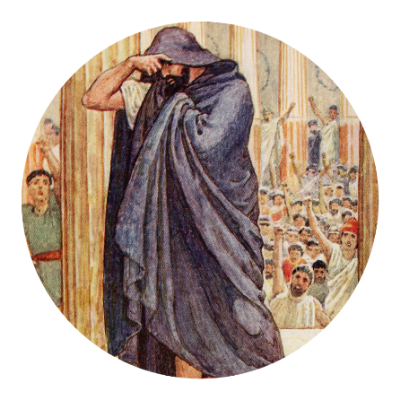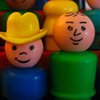I’m looking to get inspiration for my own writing. I need a hard sci fi series where earth (and earthlike worlds) are too rare, inaccessible, and/or previously spoiled beyond ability to sustain life. Bonus points if it is set on a multi-generational space station or starship without any other options and goes into detail about life support, living space, mineral mining and expansion of the station to accomodate a growing population, and daily life of it’s residents.
If anyone remembers Drifter Colonies from Titan A.E., that’s what’s in my head.
I’m looking for The Martian levels of realism, and I’m fine with a bit of “Unobtanium” clichés if they’re not core to the story.
The Culture series novel, my favorite optimistic and hard sci fi that includes artificial intelligence (minds that have giant ships or habitats for bodies and humanoid avatars to interact with people).
They basically never live on planets because they are inefficient and “inelegant”. They live on gigantic ring orbitals that have a fraction of the mass of a planet but multiple times the surface area. No big take-off energy needed either. They also live on gigantic ships that endlessly cruise the milky way. Highly recommend!
Another thought about “colonizing planets” would be that it’s basically a form of genocide. Imagine someone had colonized earth half a billion years ago or just a few million years ago. Humanity would never have existed. Just stepping foot on a planet like they do on star trek is basically ecocide - with the introduction of completely foreign and possibly incredibly disruptive micro organisms. Besides the ethical aspect there would also be the loss of information - if you imagine a pristine planet to be a bio computer creating countless unique and new genetic variations and new forms of chemistry. Quite possible not something that can be covered with a computer. Or observing primitive planets as a source of entertainment. There are lots of reasons why outside of a few “home planets” advanced civilizations would never terraform existing biological systems, and would find artificial habitats far more efficient or practical.
Children of Time series goes over this a little bit, especially in the first book. Colonists end up waking up early due to a malfunction and end up falling into a devolving tribalistic race to the bottom on their journey to the planet.
EDIT: As for “hard” scifi, while I wouldn’t say this series is at the same level as The Martian or maybe The Expanse, it is pretty good with trying to keep things real, especially with regards to the human threads of the story.
https://bookshop.org/p/books/children-of-time-adrian-tchaikovsky/113411?ean=9780316452502
Author and book information. Good series.
It’s a very non traditional story structure (at least to a western reader) but The Three Body Problem series has a lot of plot revolving around the lack of inhabitable worlds.
Wasn’t there a ship, or two, that had to escape into deep space for like, a long long time?
!yes, in fact those ships end up being very important to some big events in the last 2 books!<
The Bobiverse series is about a person who dies and wakes up as an AI that must replicate itself across the stars, while humanity ends on Earth.
Someone what mentioned Kim Stanley Robinson’s Red Mars trilogy, and that is really good, but his book Aurora is almost exactly what you are describing.
Highly recommend.
I was looking for Aurora. I also think it’s right on the money. Gets into the weeds with micro ecosystems.
The idea that humans need the diverse micro ecology of earth in order to not become ill over the course of generations is pretty interesting.
Read Dune if you didn’t read it it goes deep in to ecology and terraforming of Arrakis, Fremen surviving on it,water relations in environment…
Another inspiration for you may be Scavengers Reign - animated series about surviving on lush planet that is really inhospitable for humans.
All tomorrow’s by c.m koseman may be interesting to you. It’s a short story that examines the state of humanity several billion years in the future after they have evolved to be unrecognizable. Some civilizations thrived and became better, many devolved and live tortured existances. Quite a few lose the ability to speak or lose intelligence in general.
Just a loose round up so far
Seveneves Neal Stephenson
Tau Zero Poul Anderson
Metro 2033 Dmitry Glukhovsky
The Children of Time Adrian Tchaikovsky
Lucifer’s Hammer Larry Niven
Pushing Ice Alastair Reynolds
Record of a Spaceborn Few by Becky Chambers
Diaspora by Greg Egan
A Memory Called Empire by Arkady Martin
The 100 Kass Morgan
Interdependency trilogy by John Scalzi.
Silo series of books by Hugh HoweySeveneves is incredible, with the caveat that the last chapter of the book was almost handwavey with regards to the author’s conclusion of where humanity ended up. 10/10 otherwise.
What’s the rest of his works like? I’ve read snow crash and loved it, will give seveneves a go.
Highly recommend Anathem and Diamond Age. Cryptonomicon and Baroque Cycle are more tours-de-force but if you are nerdy enough (I mean c’mon this applies to all his work) and very into history, I can recommend those too.
Seconded!
I wouldn’t call Cryptonomicon a tour de force, I remember it fondly. But then again, I’m mildly interested in cryptography and historical background to stuff never hurts when presented entertainingly 😀
Thumbs up for the Silo series. Even though it’s not in outer space, many other boxes tick: multi-generation, environmental systems, spoiled planet …
John Varley’s 8 Worlds books (pre- and post-reboot) have had to colonize the rocks of the Solar system, tho they’re not that technical, and he rarely moves past the Moon. Also Gaea (Titan, Wizard, Demon) has an extremely alien habitat; there are other Gaea creatures, just the protagonist one is crazy but also Human-friendly.
Vernor Vinge’s A Deepness in the Sky is about life on STL, multi-generation starships.
Bruce Sterling’s Schismatrix is mostly set in habitats, asteroid mining, and Martian terraforming, but also a very alien hive.
- NEVER BORN. “You mean we all came from Earth?” said Nikolai, unbelieving.
“Yes,” the holo said kindly. “The first true settlers in space were born on Earth—produced by sexual means. Of course, hundred of years have passed since then. You are a Shaper. Shapers are never born.”
“Who lives on Earth now?”
“Human beings.”
“Ohhhh,” said Nikolai, his falling tones betraying a rapid loss of interest.
Maybe have a look at The Long Winter Trilogy by A.G. Riddle (available at kindle unlimited)
Ohhhhh boy, I get to nerd out. OK, super short story; reading and chatting about The Expanse book series got me pointed towards the work of Alastair Reynolds. The early parts of his universes arch aren’t really relevant for your purposes, but in the latter books, how humanity survives on lifeless rocks, is exactly what you’re looking for. Plus, he’s a astrophysicist doctor, iirc, and it is quite quite good hard Sci Fi.
I love Alastair Reynolds
I finished Alastair Reynold’s Pushing Ice a few months ago and it’s kind of close to what OP is looking for. Also a really good book!
You might want to check out Record of a Spaceborn Few by Becky Chambers. The book is about the people of the Exodus Fleet, a group of multi-generation ships that left Earth years ago. Even though the fleet eventually found other planets for them to live on, many are content to continue living out in space. It’s a neat little slice of life book about this community doing their part to keep these ships going.
The Children of Time books by Adrian Tchaikovsky have a lot of those themes. Half of the first book is about an ark ship sent out to find a habitable planet because earth is dying. It spans hundreds of years as key crew members go in and out of hyper sleep. Relationships and political factions form and dissolve as the ageing ship continues its mission to find a new home.
The second book focuses on a terraforming crew that was sent to another star system to prepare a planet for humans. However, the planet’s ecology is so alien it proves very difficult to gain a foothold.
I’ll second this (though I’ve only read the first thus far). I don’t know that I’d consider it especially hard SciFi but it’s far from a space opera. I recall feeling like the justification for the creation of the arachnid race was a bit hand-wavey, but the level of thought put into their society more than made up for the required suspension of disbelief. Definitely one of my favorite books.
For something similar I’d also recommend Dragon’s Egg by Robert L. Forward. It’s about the discovery of intelligent life on a neutron star, who develop at a rate exponentially faster than humanity. Also not super hard SciFi, but a great exploration into truly alien life.
I really enjoyed the first and could not get into the second in the children of time series
There’s a third now, I need to read it still. I liked the second, though
It’s possible Just wasn’t the flavor I was looking for at the time. I’ll give another go at some point. I hear great things from people so it’s probably just send me a thing
I loved the first two, but I had a hard time getting through the third. It has interesting concepts but it takes a long time to make its point. Plot structure spoilers:
spoiler
The main reveal should have happened half way through, not at the end.
Not quite what you’re after but I absolutely love Diaspora by Greg Egan.
It’s a different take on the same issues you’re asking about (not at first, but it’s not really a spoiler to say that it explores them whether or not it’s as necessary as your examples state), a take that leans more into different forms of existence rather than supporting our current existence in a different environment (but touches on aspects of that too, kind of). It’s mega-multi-generational while also not being that at all, depending on perspective.
Not quite what you’re after but I absolutely love Diaspora by Greg Egan.
Came here to say that it’s the BOOK OP is looking for , Moreover, it’s one of the authors present on the fediverse @gregeganSF@mathstodon.xyz
I don’t know how the original version works, but in the French translation Francis Lustman made a real effort in building a coherent grammar with neo-pronoms which match very well the book tone, and is a great exercise.
However, Diaspora isn’t the most accessible Egan book. I mean, if you never heard about stuff like complex conjugate, or Penrose tiles you’ll struggle with some of the concept.
Doesn’t quite fit the bill as there’s a planet eventually but Children of Time by Tchaikovsky is excellent and half the book follows a generation ship. The other half follows a successive evolution of uplifted spiders. It’s reasonably hard sci-fi not Martian levels of detail about the science but very well written and enjoyable. Could be worth a go for some inspiration.
The other half follows a successive evolution of uplifted spiders
This is the book I didn’t know I wanted to read until now.
It owns. Haven’t read the third one yet. Not even sure if it’s out but if it is it’s next on the list.
@Lemonparty cool I’ve been looking for a series.
It does a really good job of making you empathize with giant spiders. I can also recommend the audio book, very well done.
@Berttheduck awesome. I love relatable non-human characters that are genuinely alien not just crypto humans.









